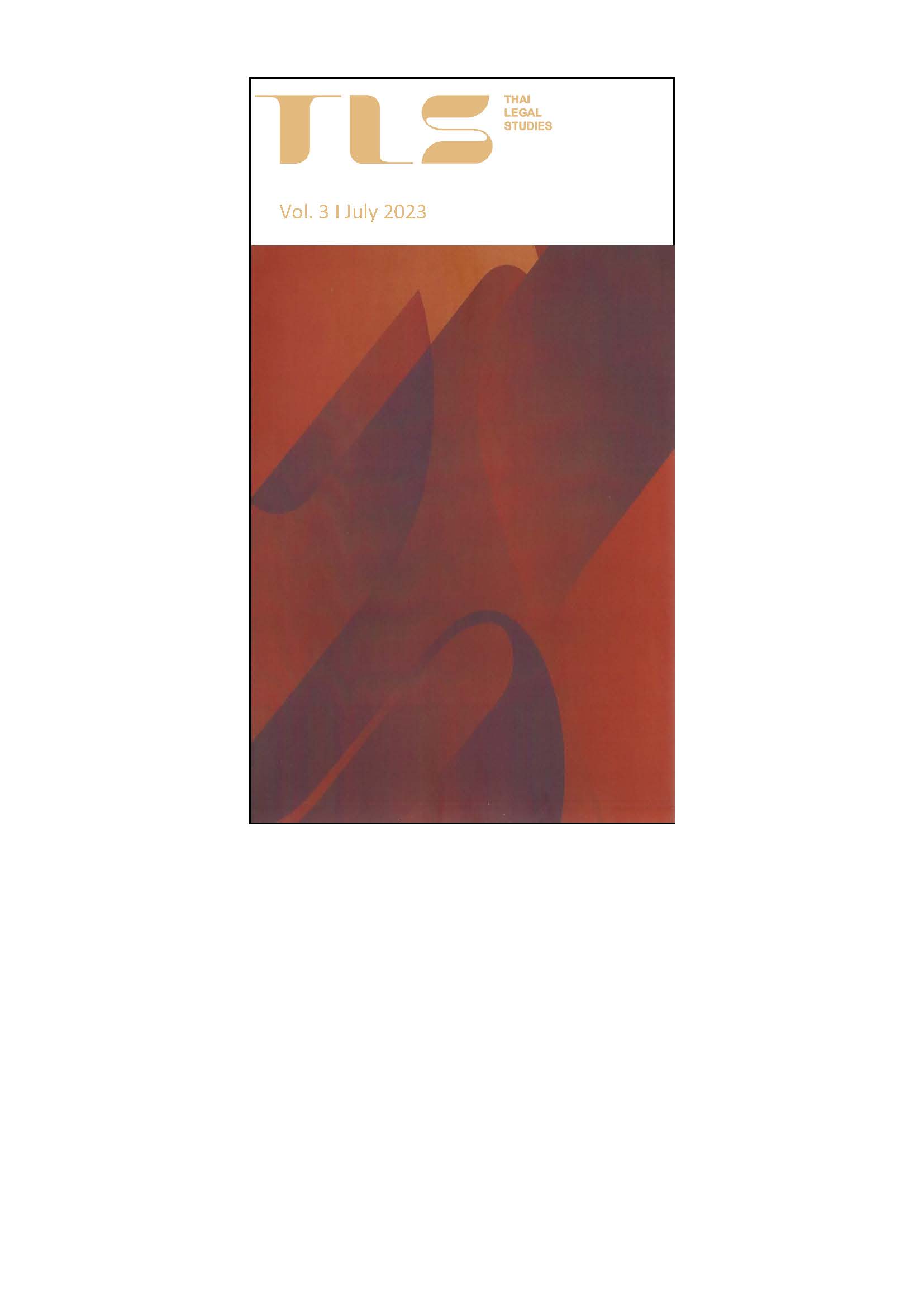Remorseful or Resigned: Criminal Justice Legitimacy and the Appearance of “Docile” Defendants
DOI:
https://doi.org/10.54157/tls.261254Keywords:
Compliance, Docility, Legal consciousness, Self-blame, Symbolic violenceAbstract
In monopolizing penal violence, the criminal justice system requires public acceptance, preferably not via coercive force but rather via the recognition of legitimacy that yields voluntary compliance. Nevertheless, under pressure of the demand for efficiency and mass case processing, the modern-day criminal justice system increasingly relies on convenient indicators that promote a superficial image of legitimacy. What follows is the undesirable blindness of the system to its marginalization of defendants. Still, the authorities’ indifference can remain strong so long as defendants appear willingly compliant. Being directly affected by the state’s penal power, defendants’ voluntary expression of repentance and obedience is arguably a strong affirmation of the system’s fairness. Drawing conclusions from observational and interview data regarding the criminal court process in Thailand, this article argues that instead, such visible docility is shaped by systemic pressures that gear defendants towards self-blame and fatalism. Such gearing mechanisms are neither deliberate nor coercive; yet, under their influence, free choice is also elusive. Accordingly, the defendants’ appearance of docility is defensibly induced by the system rather than being utterly voluntary. Although subconsciously produced, defendants’ complicity in their own marginalization powerfully endorses the claimed legitimacy of the proceedings, albeit to the erosion of the due process principle.
References
Anleu, Sharyn Roach, and Kathy Mack. “Intersections Between In-Court Procedures and the Production of Guilty Pleas.” (2009) 42(1) The Australian and New Zealand Journal of Criminology 1. https://doi.org/10.1375/acri.42.1.1
Bourdieu, Pierre. Masculine Domination (Richard Nice, trans, Stanford University Press 2002).
Bourdieu, Pierre. Outline of a Theory of Practice (Richard Nice, trans, Cambridge University Press 1977). https://doi.org/10.1017/CBO9780511812507
Carlen, Pat. Magistrates’ Justice. (Martin Robertson & Company Ltd. 1976).
Cheng, Kevin Kwok-yin, et al. “Why Do Criminal Trials ‘Crack’? An Empirical Investigation of Late Guilty Pleas in Hong Kong.” (2018) 13(1) Asian Journal of Comparative Law 1. https://doi.org/10.1017/asjcl.2017.27
Duff, Antony. Punishment, Communication, and Community (Oxford University Press 2001).
https://doi.org/10.1093/oso/9780195104295.001.0001
Ewick, Patricia, and Susan S. Silbey. The Common Place of Law: Stories from Everyday Life. (The University of Chicago Press 1998). https://doi.org/10.7208/chicago/9780226212708.001.0001
Feeley, Malcolm M. The Process is the Punishment: Handling Cases in a Lower Criminal Court (Russel Sage Foundation 1979). https://doi.org/10.2307/1288075
Goffman, Erving. Asylum: Essays on the Social Situation of Mental Patients and Other Inmates (Anchor Books 1961).
Gormley, Jay, and Cyrus Tata. “Remorse and Sentencing in a World of Plea Bargaining.” In Steven Tudor et al. (eds), Remorse and Criminal Justice: Multi-Disciplinary Perspectives (Routledge 2022) 40. https://doi.org/10.4324/9780429001062-4
Gormley, Jay, and Cyrus Tata. “To Plead or Not to Plead? ‘Guilt’ Is the Question: Re-thinking Sentencing and Plea Decision-Making in Anglo-American Countries.” In Cassia Spohn and Pauline Brennan (eds), Handbook on Sentencing Policies and Practices in the 21st Century (Routledge 2021).
Hanks, Lucien M. “Merit and Power in the Thai Social Order.” (1962) 64(6) American Anthropologist 1247. https://doi.org/10.1525/aa.1962.64.6.02a00080
Jacobson, Jessica, Gillian Hunter, and Amy Kirby. Inside Crown Court: Personal Experiences and Questions of Legitimacy (Policy Press 2015). https://doi.org/10.1332/policypress/9781447317050.001.0001
Johansen, Louise Victoria. “Between Remand and Verdict: Ethnic Minority Prisoners’ Legal and Penal Consciousness.” (2021) 62(4) The British Journal of Criminology 965. https://doi.org/10.1093/bjc/azab094
Kohler-Hausmann, Issa. Misdemeanorland: Criminal Courts and Social Control in an Age of Broken Windows Policing (Princeton University Press 2018). https://doi.org/10.23943/9781400890354
Lipsky, Michael. Street-Level Bureaucracy: Dilemmas of the Individual in Public Services (Updated edn, Russell Sage Foundation 2010).
McConville, Mike, and Luke Marsh. Criminal Judges: Legitimacy, Courts and State-Induced Guilty Pleas (Edward Elgar Publishing 2014). https://doi.org/10.4337/9781782548928
Mulcahy, Linda. Legal Architecture: Justice, Due Process and the Place of Law (Routledge 2011).
Plous, Scott. “The Psychology of Prejudice, Stereotyping, and Discrimination.” In Scott Plous (ed), Understanding Prejudice and Discrimination (Mcgraw-Hill 2003) 3.
Streckfuss, David. Truth on Trial in Thailand: Defamation, Treason, and Lèse-Majesté (Routledge 2011) https://doi.org/10.4324/9780203847541
Supakit Yampracha. “Understanding Thai Sentencing Culture” (PhD thesis, University of Strathclyde 2016).
Tata, Cyrus. “Humanising Punishment? Mitigation and ‘Case-Cleansing’ Prior to Sentencing.” (2019) 9(5) Oñati Socio-Legal Series 659. https://doi.org/10.35295/osls.iisl/0000-0000-0000-1098
Tata, Cyrus. “Ritual Individualization: Creative Genius at Sentencing, Mitigation, and Conviction.” (2019) 46(1) Journal of Law and Society 112. https://doi.org/10.1111/jols.12144
Tombs, Jacqueline, and Elizabeth Jagger. “Denying Responsibility: Sentencers’ Accounts of Their Decision to Imprison.” (2006) 46(5) The British Journal of Criminology 803. https://doi.org/10.1093/bjc/azl002
Wakefield, Alison, and Jenny Fleming (eds). The SAGE Dictionary of Policing (Sage 2009). https://doi.org/10.4135/9781446269053
Weisman, Richard. “Being and Doing: The Judicial Use of Remorse to Construct Character and Community.” (2009) 18(1) Social & Legal Studies 47. https://doi.org/10.1177/0964663908100333
Wilson, David A. Politics in Thailand (Cornell University Press 1962).
Published
Issue
Section
License
Copyright (c) 2023 Thanyanuch Tantikul

This work is licensed under a Creative Commons Attribution 4.0 International License.
Authors retain copyright and publishing rights without restrictions, but grant Thai Legal Studies the right of first publication in English and to distribute the work under a Creative Commons Attribution 4.0 International Public License (“CC BY 4.0”). It allows others to freely share the work, including the making of translations. There is no charge or fee for readers to immediately view published articles or content, and users are allowed to read, download, copy, distribute, print, search, link to the full texts of the articles, or use them for any other lawful purpose, without asking prior permission from Thai Legal Studies or the author(s), the only requirement being that an acknowledgement is given of the work’s authorship and its initial publication in English by Thai Legal Studies.







